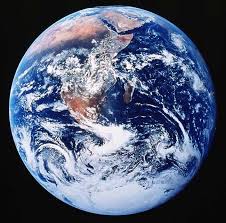AUTHOR OF THIS ARTICLE IS PICTURED AT THE END

This essay as taken from my course in International Relations and a talented student writer:
Norman Simon
Professor Frederick Shiels
POLS 370-DLA
28 February 2021
Prior to taking this class, I was not all that familiar with International Relations. I had: visited the United Nations three times, taken European and Global History in high school and regularly watched CNN, however, my primary interest and focus has always been American History, particularly the American Presidents and elections. While I knew that as a super power, America was a major actor on the world stage, I concentrated on its domestic, rather than foreign policy legislation, hence, much of the material and terms that we are covering in this course are entirely new to me.
Of all of the topics and concepts that we have covered so far, the one that has most fascinated me the most is that of ‘world citizen.’ Most of us tend to consider ourselves citizens of the nation in which we have either been born or have chosen, through immigration. We may feel a sense of connection to the countries that our ancestors descended from, however, for most of us, considering ourselves world citizens, rather than as: Americans, Italians, Albanians, Japanese, Brazilians, etc. is a foreign concept. When one simply views themselves as a member of the society in which they live, they tend to view the world and the interactions between nations in both a nationalistic and realistic manner, whereby power is used to advance a state’s interests. Each treaty, trade deal and piece of legislation is viewed in the context of ‘is it good for America’ (or whatever country the individual is from) or ‘how does it benefit us,’ (self-interest), rather than what is its impact on the world and its people, (all of them), both in the short and long terms.
As I continue to think more and more about what being a world citizen truly means, I have come to the realization that if we truly saw ourselves as citizens of the world, rather than simply defining ourselves by what is stamped on our passports, we would begin to desire for all people, what we presently desire for: ourselves, families and nation. We would begin to see issues such as: poverty, disease, healthcare, hunger, terrorism gender and racial equality and environmental concerns, just to name a few, not simply in the context of how they affect us (personally), but rather how they affect the entire global family. We would begin to view actions that we presently take for granted such as buying or selling products that are made through the exploitation of women and children, (Apple’s Manufacturing in China: Key Issues), treating the planet as our personal dumping ground, or supporting legislation and policies that benefit us, at the expense of others as unconscionable. We would stop seeing the world in terms of us and them, but rather, we would all become uses. If each of us began to see ourselves as global citizens, we would become more willing to create alliances with other nations and to explore solutions that transcend national borders. As our economy becomes increasingly more global with every passing year and information gets disseminated faster and faster across the globe via the internet, the logical next step would be the strengthening of international agencies to help cope with the myriad of problems, (mentioned above), that no single nation can eradicate on their own.
Through our discussions on nationalism, I have come to realize that while it can give a nation’s people a sense of pride in their country or unite them together in a common cause, it can also divide them (both domestically and in their relationships with other states). Many of the most heinous crimes against humanity, have happened in the name of nationalism (ie. Nazi Germany or America’s treatment of the Vietnamese people as was depicted in Hearts and Minds). While nationalism is meant to bring people together, by its very nature, it unites one group together (us) against another group (them) which is what is presently happening in India against Muslims.
Through our class discussions, I have begun to wonder, if each state is considered sovereign, in that it can theoretically do whatever it wants within its own borders, what is the role of the international community when states choose to commit acts that violate human rights or are unable for whatever reason to meet the needs of all of their citizens? Do other states step in or is this the role of the United Nations?


